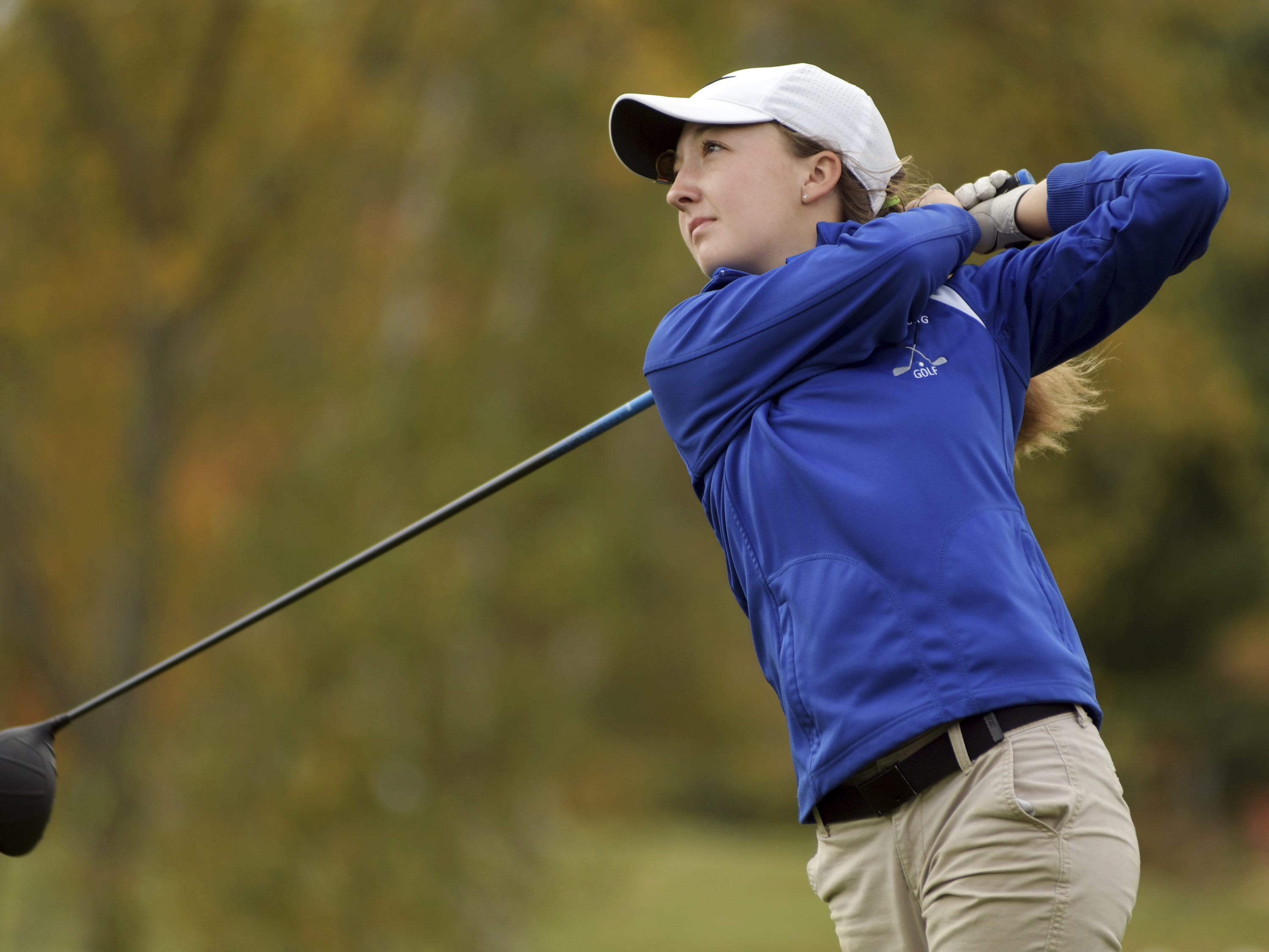The sports landscape is changing, slowly but surely, when it comes to gender. It has been since the passage of Title IX 45 years ago. Women and girls are continuously fighting to be taken seriously as athletes, and are being accepted more and more. There are several high school girls across the state making an impact on their varsity football teams, and there have been plenty of cases of girls holding their own on a boys team, just to compete in the sport they love.
But every so often, you run across a case that reminds you that there’s still work to be done.
Tuesday at Blissful Meadows in Uxbridge, Lunenburg High junior Emily Nash shot a 75 to finish first in the Central Mass. Division 3 boys golf tournament. Her score was a whole four shots better than AMSA’s Nico Ciolino.
But because of a MIAA rule that prohibits females from competing (and placing) as individuals in the boys tournaments, Nash left Blissful Meadows empty-handed. Nash was denied the first-place trophy and title because she is a girl participating in a tournament that the MIAA has ruled is just for boys.
The rule is in place for a reason. There is a girls tournament in the spring season, since girls golf takes place during the spring. But Nash’s high school doesn’t field a girls team (like other many schools that have a boys team but not a girls team), so she is allowed to participate on the boys team, she’s just not allowed to earn any individual accomplishments. Instead, she can participate in the girls tournament in the spring on her own.
I understand why she wasn’t allowed to place on Tuesday … the rules are the rules, and the golfers had to abide by them. And there are arguments for the rule as well; if a boy sets a state record in a girls individual sport, people would be up in arms as well.
With the way the rule stands now, Nash can be a part of the team. Her score counted toward the cumulative team score for Lunenburg, but since the Blue Knights did not qualify to compete in the state tournament next week in Great Barrington, Nash is also denied the opportunity to go.
I understand encouraging participation in the girls tournament and on girls teams, but playing on a girls team was not an option for Nash. She is just as much a part of the Lunenburg golf team as every boy on the team, and she should be recognized for her accomplishments as part of the team and as an individual. But even the MIAA’s statement on the controversy refuses to acknowledge Nash as an individual golfer.
“The MIAA and its member schools congratulate all golfers on their performance at the recent fall sectional team golf tournament,” the release states. “In particular, the skill of the female golfer from Lunenburg was on display as she represented her personal ability and effort on behalf of the Lunenburg High School Boys Golf Team.”
The statement never even refers to Nash by name, instead calling her “the female golfer from Lunenburg” or some variation. I get that rules are rules, but I’m not sure the MIAA wants to be in the business of denying someone of a title or accolade due to the person’s gender. It seems outdated and out of touch.
The girls tournament just isn’t as competitive, and isn’t yet on the same level as the boys tournament. It’s understandable, since the majority of high school golfers in the state are male. The field is deeper and more competitive for the boys, and winning it might be viewed as a more noteworthy accomplishment by, say, college recruiters. It’s an impressive resume item for a high school golfer, to win a sectional tournament, and who knows how Nash would have fared had she been allowed to continue on to states.
Last year, in the combined North/Central/West sectional girls tournament, 72 of the 119 golfers — 61 percent — shot over 100. On Tuesday, 40 percent of the Div. 3 Central golfers (22 of 55) shot over 100. Also, for the record, Nash was not the only girl who participated; Lucy McCabe of AMSA and Jennie Walsh of Sutton also competed.
But perhaps the part that bothers me the most about the debacle is the fact that Nash contributed, like every other member of the team, throughout the season. Why should her accomplishments count any less than her teammates? Why should they be celebrated and acknowledged any less?
The great thing about this story, though, is how it has added to the ever-evolving conversation about gender and sports, and gender in general. No progress is ever made, no rules are ever changed, without a dialogue. Plus, the attention has to be a positive for Nash as well … seeing your name on ESPN or PGA.com has to be a decent consolation prize. And while Nash’s season is over, the impact of her win is definitely still being felt.

